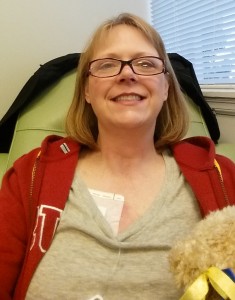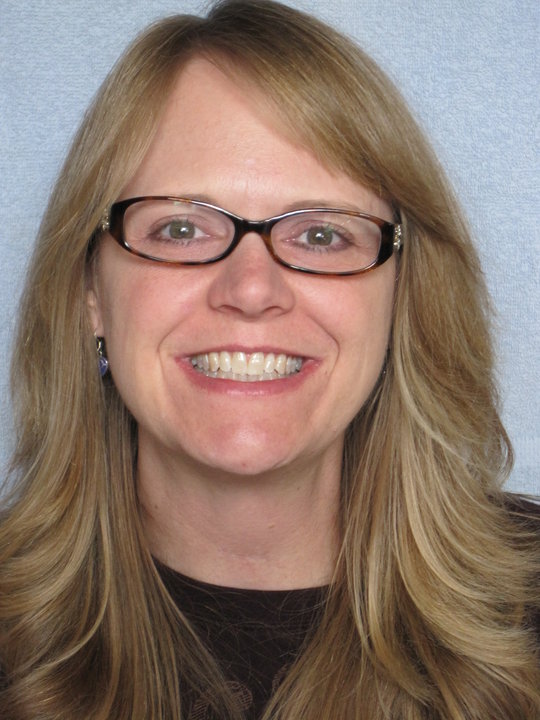The ups and downs of chemotherapy can be challenging at times. Chemotherapy affects people physically, emotionally, and mentally.
The Physical Ups and Downs of Chemotherapy
Most obvious to the outside observer are the visible physical changes, which may include weight changes, hair fallout, discoloration of skin, sensitivity to cold, neuropathy, nausea, fatigue, inability to sleep, just to name a few. From the outside these are easily observable and people sometimes comment or ask questions about these changes.
The side effects definitely result in ups and downs because they are the most basic daily challenges. Nothing else can be processed or dealt with while in the throes of nausea or sleeplessness. The priority becomes survival and finding ways to mitigate these physical effects of treatment.
Yesterday when I went to have my chemo pump disconnected at the end of my treatment, I wore a beanie because showering is more of a challenge with the pump than I can master. So, my hair was somewhat of a mess that was best covered up. It was also chilly outside, so the beanie served dual purposes. Someone who has seen me on a regular basis over the past five months asked me if I had all my hair tucked up in the beanie or if the hair she usually saw me with was mine or a wig. Thankfully, it was a good day and I found her query humorous.
The Emotional Ups and Downs of Chemotherapy
But, there are days when that would have been more that enough to send me into an emotional tailspin. My hair loss has been one of the more difficult side effects of chemo to accept. But at different times, all of the side effects have taken some emotional toll and required time to come to terms with them.
With so many foreign substances coursing through my veins, maintaining an emotional even keel has been a challenge. Out of the blue, something insignificant can seem like the end of the world and result in a major meltdown. It isn’t always predictable and it definitely hasn’t been pretty.
Then, there is the constant adjusting to having been a cancer patient. Until Monday, I had no longer called myself a cancer patient because the follow up tests after surgery showed no active disease. Instead, I was calling myself a chemo patient. Somehow, that made me feel better. It was almost like I already beat cancer even though I am still in treatment. But, inevitably another bend in the detour sends me back to square one.
For example when I started chemo cycle ten, my oncologist warned me that 80% of patients made it to cycle ten, but not beyond. My platelets and white blood cell count were both on the low end of the normal range, so I interpreted my oncologist’s ominous words as preparation for calling an end to chemo after that round. I didn’t expect my platelets and white blood cell count to rebound so effectively. You may imagine, then, my dismay when he said chemo was on for cycle 11 this week. Although I know it is the best possible scenario to finish all 12 chemo cycles, I wasn’t emotionally ready for another round.
In fact, I had already begun to think of what life might be like after chemo. I began dreaming of a future filled with hope and possibility. As I sat in the consult room with the oncologist telling me we were proceeding with chemo, suddenly I was a cancer patient again. All the gloom and doubt surrounded me, effectively erasing my hopeful plans for the future. Once again, I was the woman with the big black C hanging over her head. There was nothing I could do about it, but cry.
I wish I could tell you I was always emotionally strong and that I never had doubts, but that is not the case. There are times when my past rises up and robs me of my hope for the future. I suppose we all have things in our lives that do this, but for me, this has become the greatest emotional challenge of having cancer.
The Mental Ups and Downs of Chemotherapy
Chemo brain is real. There are times I find myself grasping for words or wondering how to explain things. My ability to process and retain information is not as strong as it was before starting chemo. Unlike other patients, however, I am not completely fogged in, but I still find myself noticing little lapses and inaccuracies that were not part of who I was before. After chemo is over, some of this will probably self-correct, but some of it may linger for awhile.
The good news is I have wise people I can sound ideas off of and who can help me think things through. Laughter can also help minimize the sting of these little inconsistencies. And hopefully, little by little, maybe I will think more like myself than I do right now. At least one can hope!
I find myself wondering who and what I will be when this is all over. I suppose only time will tell. But, whatever happens, I am hoping to be audacious and awesome!



